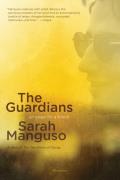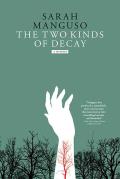 What do you write?
What do you write?I used to say book-length essays, but the inevitable follow-up question — essays about what? — would take me to another dodge, first-person narrative nonfiction... and seconds later I'd admit, I write about myself.
Now I just say the word: memoir.
I'm 38 years old and I'm working on my third memoir.
As I wrote in the first one, I have never shot heroin in an alley with a needle I knew was dirty, killed anyone by mistake or on purpose, spent even one night in jail, lost a limb, watched anyone burn to death, had to choose the child that would live, seen active duty, lost everything in a flood...
Which is to say: I have almost no story to tell, but I've spent a lot of time thinking about that almost no story. A lot of thinking about almost nothing.
In that first memoir, during the seventh year of a remission, I tried to remember the experience of being chronically ill.
In my second memoir, during the third year after his death, I tried to remember my friend.
In the third one I seem to be trying to find a reason to stop (or to continue?) my ongoing 20-year, 800,000-word diary.
By the judgment even I would make of myself, if I didn't know myself, I contain a malevolent, bottomless narcissism.
÷ ÷ ÷
But I don't find myself the most interesting subject — I just find autobiography the most potentially interesting form of writing.
Boring books are written about exciting subjects even more frequently than great books are written about banal subjects. A popular fallacy is that exciting experiences make people interesting. Some people pursue experiences that seem exciting, hoping they'll become less boring — or so I keep trying to remind myself.
Given the physiological impossibility of true recall and the imperfect record of the most careful diary, memoir is impossible by definition. It brings me pleasure to live and write within that fog of doubt. I find certainty boring. I like that my memory-work is doomed to fail. My goal is to fail in an interesting way.
The trouble is that the most cursory account of what happened is called memoir while good memoirs — that ruminate, doubt, and contextualize while maintaining awareness of the imperfect engine of their creation — must bear the same name.
Into my diary I sanctimoniously whisper: If only the word memoir hadn't been so devalued in the marketplace...
The European directive 2000/13 and the Belgian chocolate code of the Belgian Royal Association of the Chocolate, Praline, Biscuits and Sugar Confectionery Industry have decreed that Belgian chocolate cannot be called thus unless it is refined and molded in Belgium.
The grinding of the beans, however, need not take place in Belgium. And the code isn't compulsory. At least one international law firm has stated it carries no legal weight.
You can still give the name Belgian chocolate to almost anything you're selling.
÷ ÷ ÷
Popular memoirs typically represent consequence in ways that we tacitly agree are accurate. These books don't strive for accuracy; they strive to represent reality as we believe it should be represented.
 There are many types of cliché. We're probably most aware of clichés of expression: it was raining cats and dogs, and so on. But there are also clichés of form and clichés of narrative.
There are many types of cliché. We're probably most aware of clichés of expression: it was raining cats and dogs, and so on. But there are also clichés of form and clichés of narrative.
In a true story, cliché can test an audience's willingness to believe. But departure from cliché can also test an audience's willingness to believe. That's a more complicated problem.
Some readers claim to be offended when faced with a book that accurately depicts reality. If you write a nonfiction book about grief, for example, in which you represent the consequence of death as selfishness, confusion, or anything other than weeping by candlelight — if you challenge the way that grief is supposed to be represented — a lot of people will go out of their way to announce that, for that reason, the book is bad and should never have been published, the author is malignant, and so on.
Real consequence doesn't always resemble our concept of it, and an accurate and honest autobiography doesn't go from A to B. It vibrates between A and B, like life.
÷ ÷ ÷
I prefer the word autobiography to memoir because I'm not just remembering and reacting and recording; I'm analyzing, realizing, and presenting the raw stuff of experience in a form devised by the guiding intelligence. As with anything good in art, there is no genre. There are only individual examples.
An autobiographer must give up the mantle of presumed objectivity long before beginning to write.
Good autobiography is not merely an account of what happened. It is an account of what has happened since what happened, an attempt to integrate an experience with the rest of one's life.
My favorite autobiographical writing succeeds not because it solves its problems but because it attempts to solve them in interesting ways. A good-faith attempt to solve a problem is interesting even if it fails. Sometimes a failure is more interesting and more instructive than a success.
What are these failures? A failure to obtain understanding, a failure to obtain solace, a failure to change a behavior, a failure to remember something, a failure to forget something...
I like autobiography that fails to meet any of the formal demands of generic narrative — stories that discover the wrong things, that discover the right things in the wrong order, or that discover nothing. I like writers who implicate themselves — as partly untrustworthy, partly changeable, partly broken — but no more than partly; perfect falsehood is imaginary, like perfect truth.